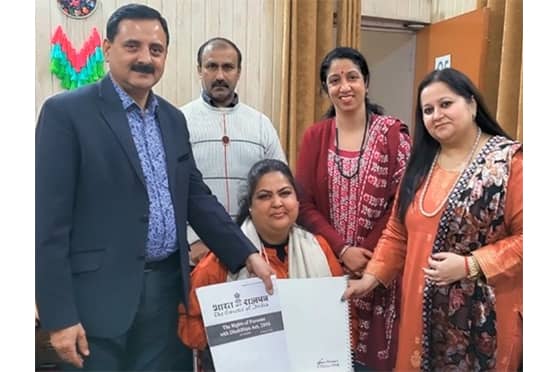Disability rights activist gifts Braille script literature to University of Jammu


Disability rights activist Sandhya Dhar, On March 6, gifted literature in Braille script on the rights of differently-abled people to the University of Jammu for the dissemination of information among the varsity students, an official said.
Dhar, who is also the president of the NGO Jiger, presented even an enlarged font version of the Rights of Persons with Disability (RPwD) Act and allied literature to the university.
The gift was received by director UGC-HRDC, S K Pandita and the head of the varsity's department of Home Science, Samridhi Arora, on behalf of the University, said the university spokesperson.
Dhar and Javed Ahmad Tak of Humanity Welfare Organisation, Kashmir, both prominent disability rights activists, also delivered lectures on the theme - Human Rights of Persons with Disabilities - at the ongoing refresher course in human rights organised jointly by UGC-HRDC and the university’s department of Home Science.
The RPwD Act versions have been prepared by an NGO, Sawabhiman from Bhubaneswar, Odisha and the scripts would be useful for the dissemination of valuable information among the visually-impaired and low-vision students of the University, added the spokesperson.
Tak, in his lecture, elaborated on the various models of disability namely, the social model, charity model and the developmental model and said he was of the view that the disabled need unconditional acceptance and non-discrimination if they are to realise their full human potential.
He mentioned that the right to equality, right to marriage and family, right to informed consent, right to education and right to liberty are basic fundamental rights that the disabled also need and aspire for.
Dhar mentioned that the Persons with Disabilities Act of 1995 and the RPwD Act of 2016 ensured that the disabled enjoyed their rights but, he added, there are certain lacunae in the implementation of these acts.
She shared anecdotes from her journey as a disability activist and also as one affected by cerebral palsy to highlight that persons with disabilities are often marginalised and discriminated against.